I Asked Olympian Nancy Hogshead for Athletic Advice. She Spoke of Love. (Cornhole #7)
Interview with the swimming champion on overtraining, injury, bodies, & love.
Hi friends, and welcome, newcomers! And shout-out to my cornhole practice partners Bruce and Diane, for all your enthusiasm and support.
Reminder: On June 7, my friends and I launched a second Substack, Women’s Sports Policy. Subscribe to hear from champion athletes, leaders, and lifelong women’s sports experts — including Nancy Hogshead — about how and why to restore female-only sports and spaces.
Love your body. Love it, love it, love it, love it, love it, love it. — Nancy Hogshead
Last week, I had a remarkable conversation with my friend Nancy Hogshead. Sensing that something special was underway, I turned on voice dictation and am eager to share this dialogue with you, lightly edited and with her permission.
Nancy Hogshead won three Olympic gold medals and one silver medal in swimming in 1984, then became a leading Title IX attorney and founder of Champion Women. This is an athlete who trained at the highest levels for nine years yet suffered zero lifelong injuries, zero surgeries. Every time we talk, I appreciate her hard-won wisdom.
Before recording, I had confessed to Nancy that, with the National Senior Games six weeks away, my bean-bag-throwing right hand and shoulder are starting to ache – and concern me. I’ve been tossing 200 bags five times per week to accumulate 10,000 throws before the cornhole competition on August 2, and tracking my scores on a spreadsheet with an interim goal of moving from “novice” to “intermediate” based on average points per round.
I’m also competing in a weekly tournament that lasts about three hours and involves lots more throwing, and lots more fun.
Given my history of athletic injuries, and given the laughable nature of competitive cornhole, I feel foolish admitting that I might be overtraining and even damaging my joints. But I confessed to Nancy — and now I’m telling you. I think some of you — whether you overtrain in sports or other quests — will relate.
It's not enough for me to just be fit. I tried that. — Mariah
Nancy: Is it just that you need to get used to having arthritis?
Mariah: I think the problem involves the disconnect between my passion for sports and my pain tolerance. While I’m practicing or competing, I just don’t care that my joints hurt. I notice. I worry a little. Then I keep going. Because I want to. The word addiction comes to mind because that's what people do when they're drinking too much. They say, yeah, it's not good for me, but I love it, so I’m going to keep doing it.
Nancy: That's so universal. Every athlete wants to do more than their body can do. Even when they're 22.
Mariah: But the smart ones like you listen, right? Yet here I am. I've been dealing with this tension between athletic drive and injuries since my first ankle sprain at eleven.
That was followed by countless other ankle sprains, then knee sprains, and on and on through junior high, high school, and beyond. [Much later, I was later diagnosed with hypermobile joints.] But by then I was hooked on competitive sports: feeling good about myself and my body and enjoying it more than I could explain to anyone except you, because I know you know. Honestly, I feel euphoric at every practice and every game, regardless of the sport.
It's not enough for me to just be fit. I tried that. Years ago, I was complaining to a masters swimming friend that when I pushed my body in meets, my shoulders or knees always seemed to get sore and inflamed. She said that’s why she quit competing.
“How?” I asked.
She said, “I changed my goal to fitness.”
I thought, Brilliant. A different goal. I'll try that. I quit masters swimming and focused on fitness for years. There's a lot to be said for that, because then you feel better.
But I missed competition terribly. So here I am playing competitive cornhole. And having a blast. But I’m afraid of repeating the pattern.
Tell me, Nancy, what did you figure out about balancing your love of competitive swimming and taking care of your body? What can you advise?
Nancy: Love your body. Love it, love it, love it, love it, love it, love it. Rather than being in conflict with your body, be in a loving relationship with it. So, you're 69 and have arthritis and other joint issues. That's the body you've got.
And I mean, Mariah, my God, what a beautiful body you’ve got! You’re tall and lanky and it serves you and you can do so much with it! You just told me you went swimming in the 61-degree ocean in your new wetsuit. You were a Stanford basketball player, professional basketball player. You made it through abdominal surgeries and shoulder surgeries and knee surgeries and you’re always telling me you were just out riding your bike or playing ping-pong or doing yoga or something. Come on, Mariah, you're beautiful. You’re elegant. Your body is remarkable!
Mariah: Thanks, Nance. I do love my body. Though not necessarily the joints: the sore parts. They seem so limiting.
Nancy: What if your body were your child?
Mariah: I would love her.
Nancy: Deeply. All of her. When you keep playing through pain, are you thinking about love?
Mariah: I’m immersed in my love of sport – but good point: I’m feeling disappointed with my body. There’s some dread. Some self-criticism.
Tell me: Where did you get your deep appreciation for your body?
Nancy: Probably, honestly, in therapy after I was raped. I became so appreciative of my body for not feeling pain at the time. For surviving. For getting me through it.
And having an orthopedic surgeon as a dad: He was clear about the distinction between what hurts – what is painful – and what hurts you: causes damage.
Mariah: I never learned that. I keep trying to.
Nancy: I’ve known so many athletes who never figured it out. People with so much talent - but they crashed and burned. And my sports law students: about half report lifelong injuries from high school sports.
I just keep coming back to self-love. If you’re going to back off a bit in your training, it wouldn’t be out of anger or frustration, but out of respect for your body, right? Because your body is talking to you.
What makes the two of us great – being driven to succeed, feeling like Superwomen – also makes us vulnerable to ignoring our other needs.
How can we love our whole selves? That’s what I keep thinking about these days.
Postscript: I asked my orthopedic surgeon for two cortisone shots, one for each shoulder. He advised against it, explaining that they weaken the rotator cuff and damage tissues, adding, “unless you feel a need to, given your upcoming competition.” Props to him for taking this aspiring cornhole champion seriously, but, having just listened to Nancy, I declined. Took a week off. Began physical therapy yet again. It’s a process. For now, I feel a lot better.
Thoughts? I’m always curious.
See also:
…and related stories in #Aging Up.


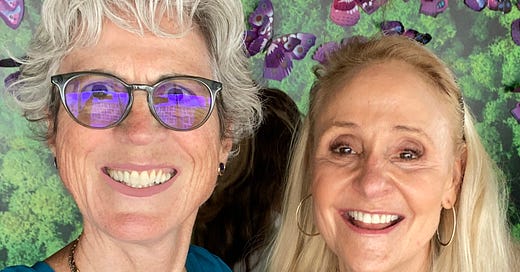



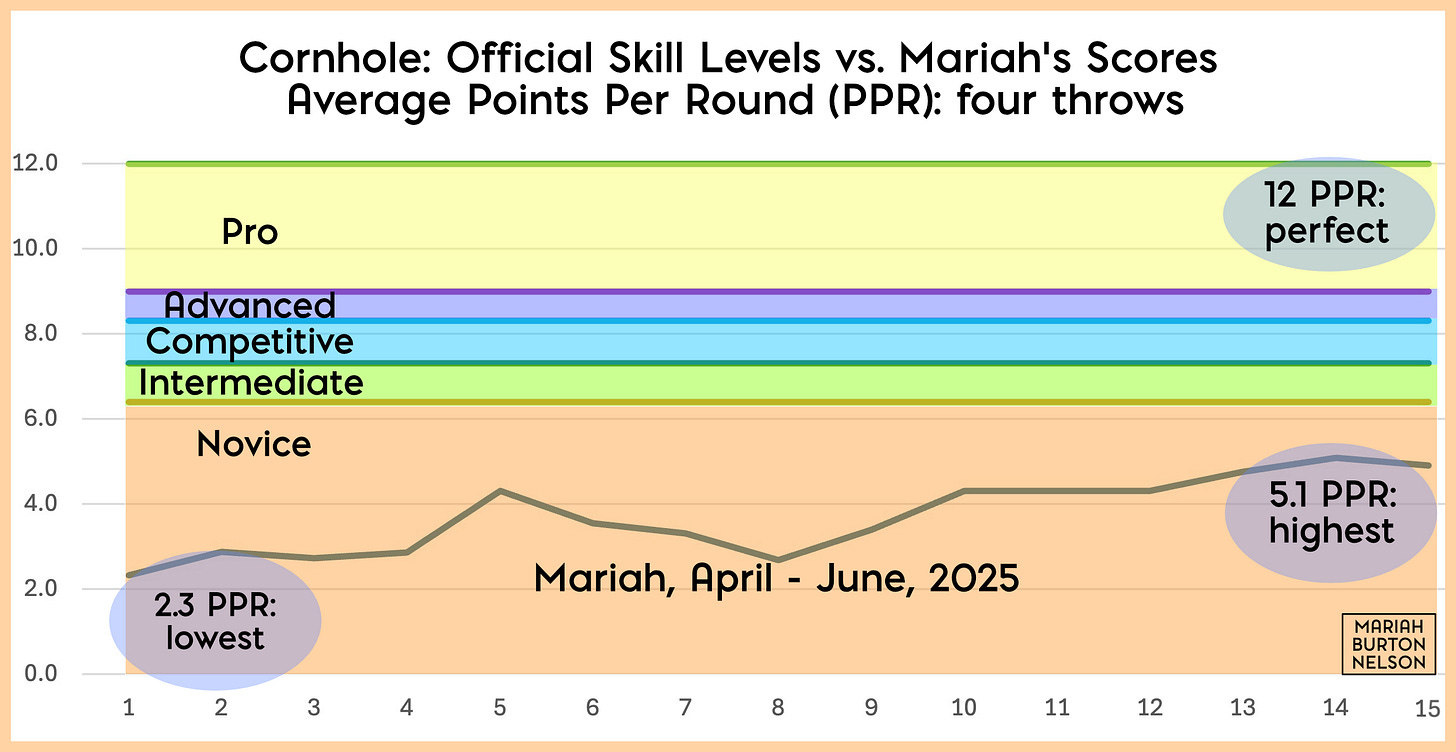
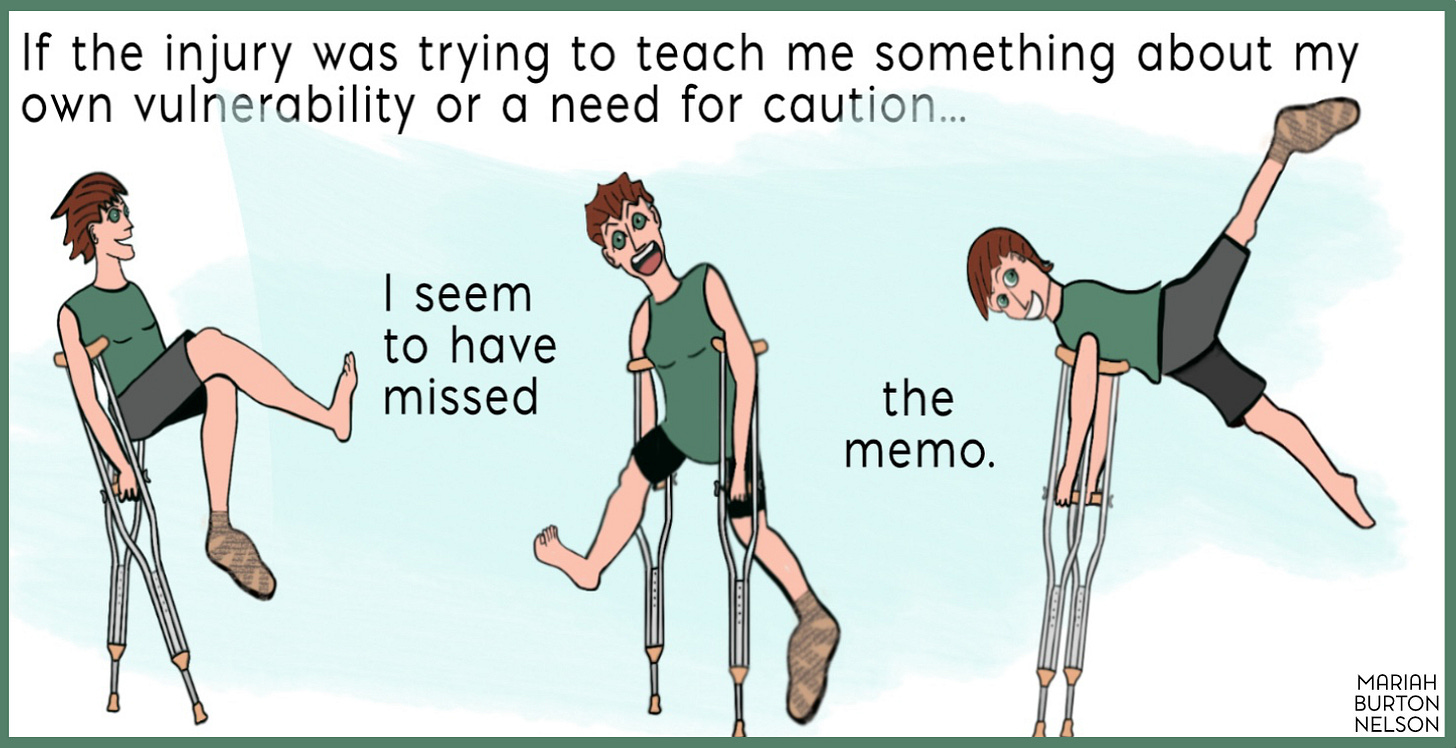
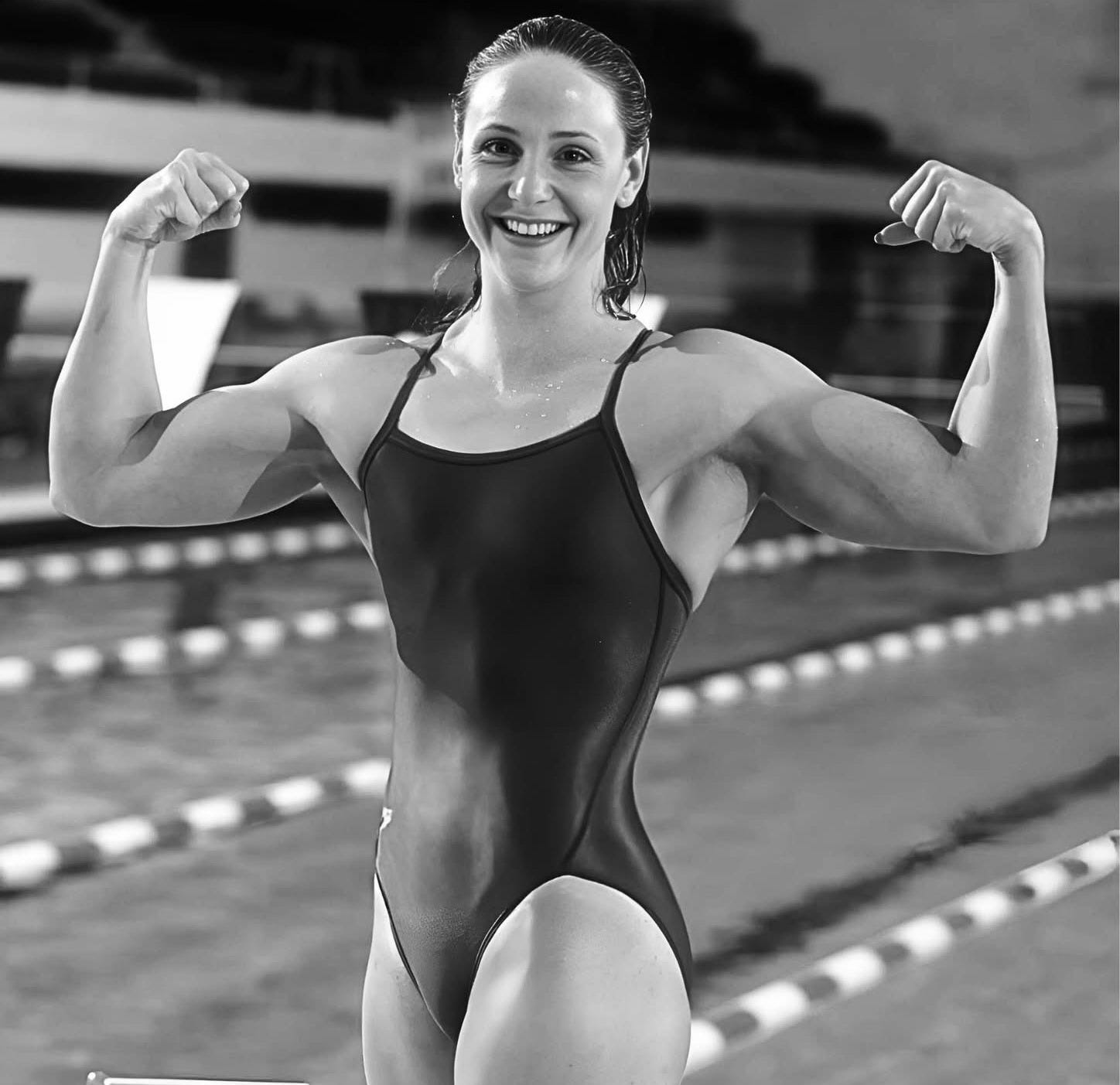
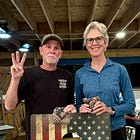

I am not now, nor have I ever been an athlete. But this dialogue spoke to me form a different perspective. Coincidentally, when I woke up this morning the first thing I did was what I always do. I weighed myself. Sure enough, I was up a pound and thus, I began my day on a sour note. As I came upstairs, thinking about what NOT to eat, I thought I've never really loved my body, no matter what my age or weight. And this, despite the fact that at age 80, I've never had a serious injury or illness. So, as I go about my day today, I intend to repeat: "I love my body, I love my body" because damn it, she deserves my love, not my disappointment.
p.s. I love the drawing.
I love, love, love this conversation. You are on a really fruitful track here, I think. I’m recalling your recent comment in a note about helping girls who are rejecting their bodies to learn to love them and what they can do. In that regard, I was particularly touched by Nancy’s comment how her body helped her get through being raped. That alone offers a remarkable insight. Thanks to you both for all you do. And good luck with cornhole!